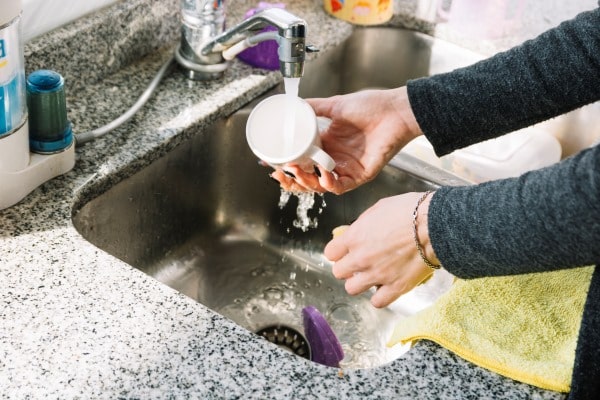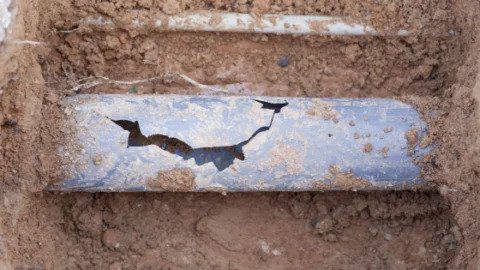Your sewer main is a critical component of your home’s plumbing system and usually goes unnoticed until a major clog occurs.
With preventative maintenance and some homeowner education we hope to help you prevent an untimely sewer main problem.
Your sewer main is responsible for transporting wastewater, along with anything else that goes down the drain, away from your property.
What are the Telltale Signs of a Sewer Line Problem?
- Multiple slow drains
- Bubbling or gurgling sounds from the toilet, sink, tub or floor drains
- Brown (sewage) water coming up from floor drains or the tub
- Soft spots in your yard
- Foul odors coming from your drains
Ways to Avoid a Sewer Line Problem
To ensure your sewer main operates efficiently and lasts for many years, proper care and maintenance are essential. Here are a few tips to keep your sewer main line clear.
Mindful Disposal Practices:
The first step in maintaining a healthy sewer main is being cautious about what goes down your drains and toilets. Avoid flushing items like grease, food scraps, sanitary products, wipes, and dental floss, as they can lead to clogs. Use drain strainers to capture debris. You can also use a mixture of baking soda and vinegar followed by hot water to clear minor clogs.

Proper Usage of Garbage Disposals:
If you have a garbage disposal, use it wisely. Avoid disposing of large quantities of food scraps at once, as this can overwhelm the system and lead to clogs in your sewer line.
If you use a garbage disposal, avoid letting food waste set and build up inside of it. After you run your disposal, allow extra water to run to help push any food debris out of your sewer main.

Avoid Planting Trees with Expansive Root Systems Near Your Home’s Plumbing
The following trees are known to have expansive root systems that have a habit of finding their way into plumbing. Tree roots seeking moisture and nutrients can infiltrate sewer main lines through cracks or joints. Be vigilant about the location of trees and shrubs near your sewer line, and consider removing or relocating them if necessary. Professional root removal or pipe repair may also be necessary.
The following trees are known for having expansive root systems and should not be planted near plumbing.
- Quaking Aspen Trees
- Cotton Wood Trees
- Oak Trees
- Bamboo
- Silver Maple Trees
- Russian Olive Trees
- Fig Trees
- Ficus Trees
- Willow Trees
- Poplar Trees
Avoid Chemical Drain Cleaners:
Chemical drain cleaners can be harsh on your plumbing pipes and may not effectively remove blockages in your sewer main line. Sometimes, these cleaners can cause more harm than good and eat away at your plumbing. Instead, rely on non-chemical methods or consult a plumber for safe and effective solutions like augering, or hydro jetting.
Monitor Water Pressure:
High water pressure can put excess strain on your sewer main. Install a pressure regulator to maintain a stable and safe water pressure level throughout your plumbing system.
Professional Inspections:
Schedule regular inspections by a professional plumber who can use specialized cameras to inspect your sewer main line for clogs, cracks, or damage. Detecting issues early can prevent more significant problems down the road.
Regular Maintenance:
Consider scheduling regular sewer line maintenance with a qualified plumber. They can perform preventive measures like hydro jetting to remove buildup and ensure your sewer main line remains clear and functional.
A well-maintained sewer main is essential for the functionality and longevity of your home’s plumbing system. By following these tips and staying proactive in your maintenance efforts, you can minimize the risk of sewer main clogs and extend its lifespan significantly. Remember that when facing significant issues or for regular inspections, consulting with a professional plumber is always a wise decision to ensure your sewer main remains in optimal condition for years to come.
When was the last time you saw the condition of your sewer line?
If your home is older than 20 years, or has a lot of vegetation in or near your yard, consider having your sewer line inspected to catch any problems early.

